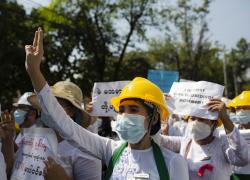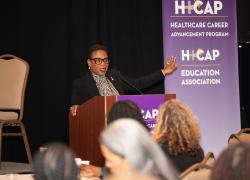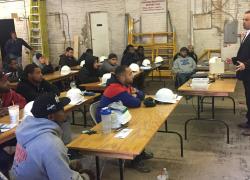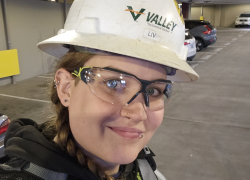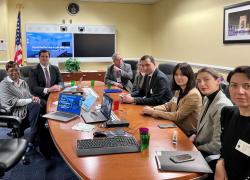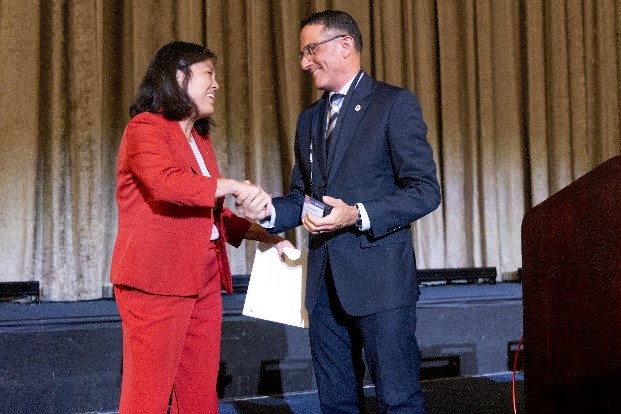
The Triad 2024 Conference recently held in New York City brought together practitioners, academics and neutrals, such as mediators and arbitrators, in labor relations to discuss key domestic and international labor issues. This joint conference combined three events, drawing over 1,300 attendees:
- Federal Mediation and Conciliation Service 2024 National Labor-Management Conference
- Labor and Employment Relations Association 76th Annual Meeting
- International Labour and Employment Relations Association 20th Triennial World Congress
The Conference featured plenary sessions, workshops and keynote addresses, including remarks by Acting Secretary of Labor Julie Su and National Labor Relations Board General Counsel Jennifer Abruzzo. The theme, “Challenges and Choices at Work in a Time of Heightened Worker Activism,” set the stage for discussions on sustainable labor relations practices in the modern workplace.
OLMS Impact
The Department of Labor’s Office of Labor-Management Standards participated in two sessions that addressed key issues facing today’s workplaces. These sessions focused on the importance of collaboration and joint problem-solving, understanding the value of worker voice, and greater transparency at work.
- “The Power of Partnerships: A National Labor-Management Partnership Approach,” highlighted the importance of labor and employers working together to achieve innovation solutions. Attendees learned about new tools and resources available to help them achieve success in collaborating with their labor or employer counterparts with the goal of fostering greater trust in the workplace.
- “Sustaining the Revival of the Labor Movement,” presented in collaboration with our colleagues from the department’s Bureau of International Labor Affairs, was dedicated to strategies for promoting worker organizing and protecting workers' rights in the modern labor climate. We emphasized the need for effective enforcement of labor laws and the importance of allowing workers to exercise the right to organize a union and advocate for their collective rights. We also discussed the department’s new policy and research initiatives to advance worker voice at home and abroad.
Key Takeaways and Moving Forward
Triad 2024 highlighted the growing impact of technology, emphasizing the need for continuous skill development and updated labor practices. Workers who lack essential protections and may be more vulnerable to labor abuses – particularly those in gig and temporary roles -- need stronger enforcement of labor standards and expanded worker rights. Economic equity and inclusion were also central themes, accentuating the importance of policies that support all workers.
Overall, Triad 2024 underscored the need for continuous innovation and cooperation to address challenges to companies and their employees. Moving forward, expanding worker protections and fostering partnerships for inclusive growth are essential to ensure all workers can thrive in an evolving job landscape. The need for continued collaboration and innovation through effective labor-management partnerships will benefit both employers and workers and are vital for maintaining a healthy labor-management relationship.
Andrew Hasty is a policy and law advisor with the Department of Labor’s Office of Labor-Management Standards.
Darnice Marsh is the labor-management partnership coordinator in the Department of Labor’s Office of Labor-Management Standards.

 U.S. Department of Labor Blog
U.S. Department of Labor Blog

